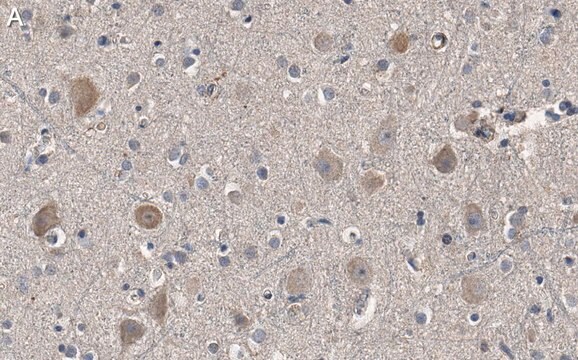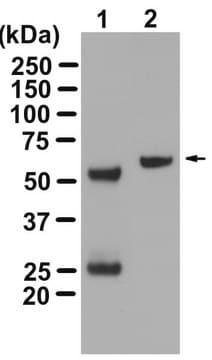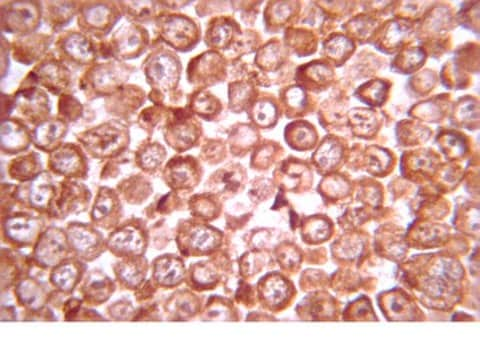05-591
Anti-Akt/PKB Antibody, PH Domain, clone SKB1
clone SKB1, Upstate®, from mouse
Sinónimos:
Anti-AKT, Anti-PKB, Anti-PKB-ALPHA, Anti-PRKBA, Anti-RAC, Anti-RAC-ALPHA
About This Item
Productos recomendados
biological source
mouse
Quality Level
antibody form
affinity purified immunoglobulin
antibody product type
primary antibodies
clone
SKB1, monoclonal
species reactivity
rat, human, mouse
packaging
antibody small pack of 25 μg
manufacturer/tradename
Upstate®
technique(s)
flow cytometry: suitable
immunocytochemistry: suitable
immunoprecipitation (IP): suitable
western blot: suitable
isotype
IgG
NCBI accession no.
UniProt accession no.
shipped in
dry ice
target post-translational modification
unmodified
Gene Information
mouse ... Akt1(11651)
General description
Application
Quality
Target description
Physical form
Analysis Note
Positive Antigen Control: Catalog #12-301, non-stimulated A431 cell lysate. Add 2.5µL of 2-mercaptoethanol/100µL of lysate and boil for 5 minutes to reduce the preparation. Load 20µg of reduced lysate per lane for minigels.
Other Notes
Legal Information
¿No encuentra el producto adecuado?
Pruebe nuestro Herramienta de selección de productos.
Optional
Certificados de análisis (COA)
Busque Certificados de análisis (COA) introduciendo el número de lote del producto. Los números de lote se encuentran en la etiqueta del producto después de las palabras «Lot» o «Batch»
¿Ya tiene este producto?
Encuentre la documentación para los productos que ha comprado recientemente en la Biblioteca de documentos.
Artículos
Autophagy is a regulated process involved in cell growth, development, and recycling of cytoplasmic components in cells.
Autophagy is a regulated process involved in cell growth, development, and recycling of cytoplasmic components in cells.
Autophagy is a regulated process involved in cell growth, development, and recycling of cytoplasmic components in cells.
Autophagy is a regulated process involved in cell growth, development, and recycling of cytoplasmic components in cells.
Nuestro equipo de científicos tiene experiencia en todas las áreas de investigación: Ciencias de la vida, Ciencia de los materiales, Síntesis química, Cromatografía, Analítica y muchas otras.
Póngase en contacto con el Servicio técnico






